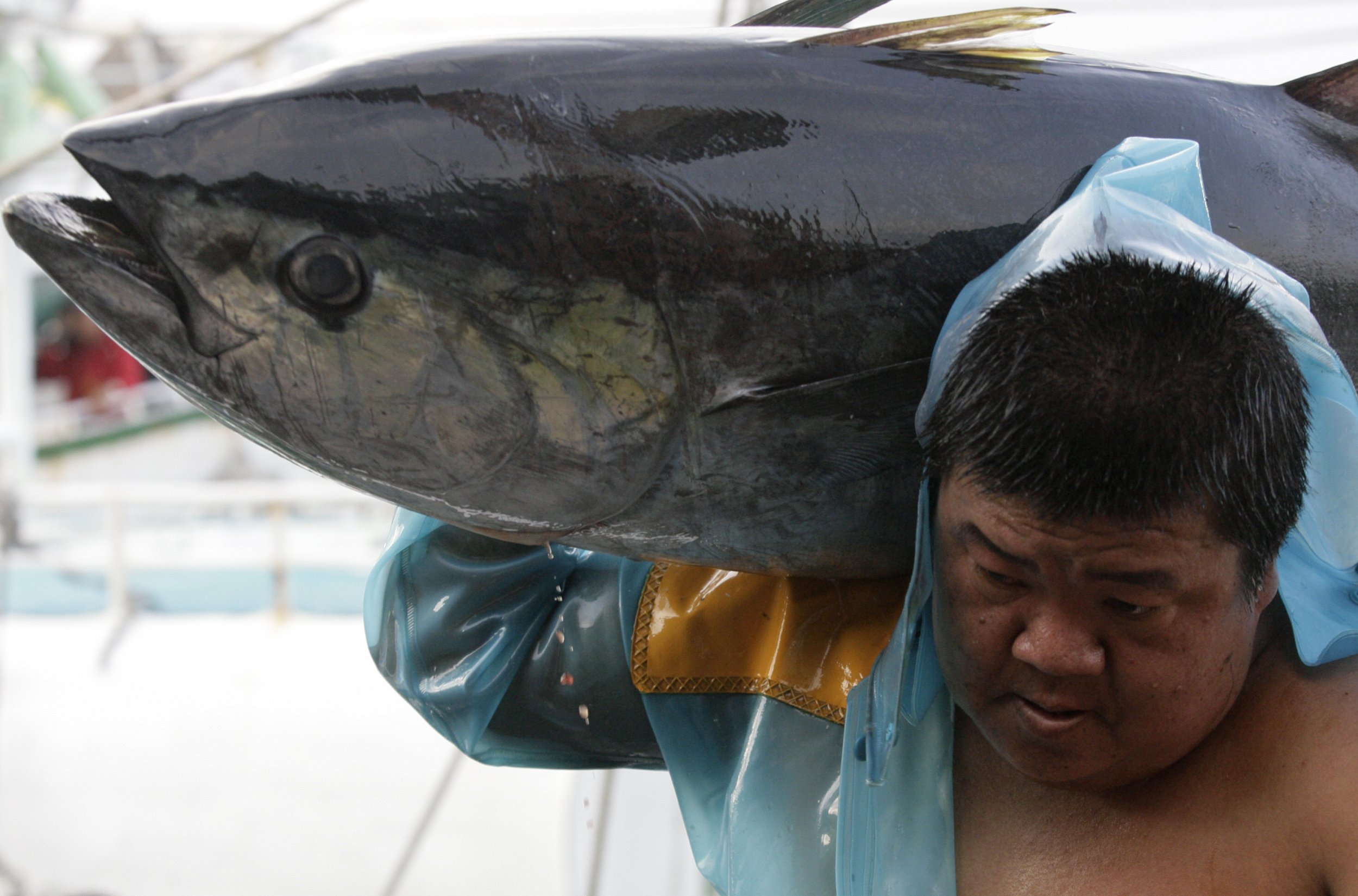
Concentrations of the heavy metal mercury have been increasing in the surface waters of the northern Pacific Ocean for decades; one recent study showed that these levels jumped by about a third between 1986 and 2006.
Perhaps unsurprisingly, concentrations of mercury have also increased in yellowfin tuna, by nearly four percent annually, according to a paper published Monday in the journal Environmental Toxicology and Chemistry. Yellowfin is also marketed as Ahi tuna; the Natural Resources Defense Council already lists this as a high-mercury fish that should be eaten sparingly or avoided altogether.
Mercury bioaccumulates, or travels up the food chain, so it is present in higher concentrations and quantities in larger, older creatures, especially carnivores that eat other animals, says David Krabbenhoft, a research scientist with the U.S. Geological Survey in Middleton, Wisconsin. For that reason, it's preferable to eat small fish such as sardines or species that mainly eat plankton, like sockeye salmon.
This new research includes a re-analysis of three previous papers looking at concentrations of the metal in fish. One controversial 2003 study suggested that mercury levels were not rising, but this re-analysis shows that paper didn't account for the declining size of fish being caught, due to overfishing, says Krabbenhoft, who wasn't involved in either study.
In humans, mercury has been shown to have an impact on the development and function of the brain and nervous system, and has been blamed for developmental problems and reduced IQs in highly exposed children. It is primarily released into the environment through the combustion of coal and small-scale gold mining, where mercury is used to bind to the mined gold, before being burnt off.
Much of the mercury in the Pacific arrives there from industrial activities in Asia, particularly in China, according to research at the University of Michigan, with which the lead author of this study, Paul Drevnick, is affiliated. The metal is converted into its most toxic form, methylmercury, by microbes in wetlands and deep in the ocean, research shows.
The latest research complements other work showing rising levels of mercury in various animals, says Dr. Philippe Grandjean, an environmental health researcher and physician at Harvard University who was involved in the study. "Recent studies using peregrine feathers, teeth from Beluga whales and hair from polar bears show that current mercury concentrations are about 10-fold above the pre-industrial levels," he says.
Mercury is eventually removed from the food chain when it sinks into the deep ocean or is bound up in soil, Krabbenhoft says, but that takes centuries. So we are stuck with the mercury we have recently emitted for some time; one study found that 83 percent of the surface ocean's mercury ended up there from human activities.
But there is some good news. Most of the world's major economic powerhouses, including China, have signed the Minamata Convention, an international treaty that will limit the use of many mercury-containing products by 2020, and includes other provisions to reduce emissions of the heavy metal.
A series of rules known as the Mercury and Air Toxics Standards that are meant to reduce mercury pollution from coal plants and other sources will go into effect in the United States this spring, Krabbenhoft says. But the legality of MATS, as it's known, has already been challenged by industry groups, and the U.S. Supreme Court has agreed to hear the case, with a decision expected sometime this summer.
It's still important to stress that fish are a very healthy food, and an important source of nutrition. However, people should limit the amount of fish they consume that contains high levels of mercury, Krabbenhoft adds. These guidelines are particularly important for pregnant women, since a fetus's developing brain is much more vulnerable to mercury exposure than that of an adult or even a child, Grandjean says.
Uncommon Knowledge
Newsweek is committed to challenging conventional wisdom and finding connections in the search for common ground.
Newsweek is committed to challenging conventional wisdom and finding connections in the search for common ground.
About the writer
Douglas Main is a journalist who lives in New York City and whose writing has appeared in the New York ... Read more
To read how Newsweek uses AI as a newsroom tool, Click here.








